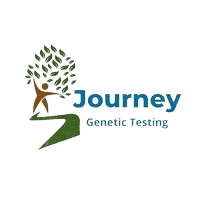What DNA Test Do I Need?
One of the most asked questions we are asked is “what DNA test do I need?”
DNA testing through Journey means that there is no difference in the accuracy of our at home or legal DNA test, as both results are 100% accurate. The difference is in how you can use the results.
Many biological relationship can be verified with legal DNA testing, including paternity, maternity, siblings, grandparents, and avuncular aunt/uncle relationships.You might be considering if you actually require legal DNA test findings or merely informational ones. We’ll discuss a few factors in this post that you might want to take into account before choosing a product.
What’s A “Legal” DNA Test?
It’s no secret that the findings of genetic testing can genuinely alter lives. Legal DNA testing can be used to verify a new, brother or sister who was previously unknown, or to validate an existing biological link. Whatever the situation, it’s critical to carefully plan, evaluate any potential consequences, and determine whether legal action may be required as a result (such as a probate issue, Social Security benefits, child support, etc.).
The most important thing you can do when deciding move forward with a DNA test, regardless of whether you are conducting legal or non-legal testing, is to make sure the analysis is done in an AABB recognized lab.
Next, get familiar with industry lingo. A DNA test that yields a signed, notarized, and AABB-sealed certificate of results is considered to be lawful or admissible in court. DNA testing for informational purposes is not legally binding and should therefore only be used for personal knowledge. Legal DNA Testing requires that the specimen collection must follow strict chain of custody as set forth by the AABB. Most importantly this means that the DNA collection must be witnessed from beginning to end by a third party not related to the case in a clinic or lawyer’s office if mutually agreed by both parties.
Can Anyone Be A Witness For A Legal DNA Test?
Sometimes people want to use a friend or neighbor as a witness in a legal DNA test. Some companies will tell you this is permitted, however it is critical to know that if the validity of the results or the chain of custody is questioned, the evidence won’t be acceptable. All test participants are required to present a reliable form of identification. Also the person doing the DNA collection must be properly trained. We require an additional step for our network of over 3,500 DNA collectors – signing a document with each collection verifiying they are have received proper training, and how much experinece they have.
In contrast, no one needs to be present to witness the gathering for a non-legal informational test, and no IDs are necessary. Only the private test kit can be completed in the comfort of your home.
What can a legal DNA result be used for?
The legal document we provide can be used, among other things, to modify a birth certificate, submit a DNA sample for immigration purposes, or establish a relationship for the purpose of receiving social security or insurance benefits, as well as helping to verify validity for inheritance. A legal test result can be used to secure child custody and paternity rights in divorce situations, which happens frequently.
It’s crucial to think about up front whether you believe you would wish to pursue any kind of legal action once you learn the findings of your test. It is recommended to start with the legally-binding results if you feel that you need to move through with legal proceedings. You cannot modify the test type later if you decide to conduct a non-legal test first. You would have to retake the legal DNA test from scratch. Another factor to take into account is that once someone is aware of the findings of the test, they can decide against doing a legal DNA test.
If you have any questions, call us and speak to one of our Genetic Consultants at 855-362-5224. You can also email us with your questions at info@dna-paternity-testing.com.

